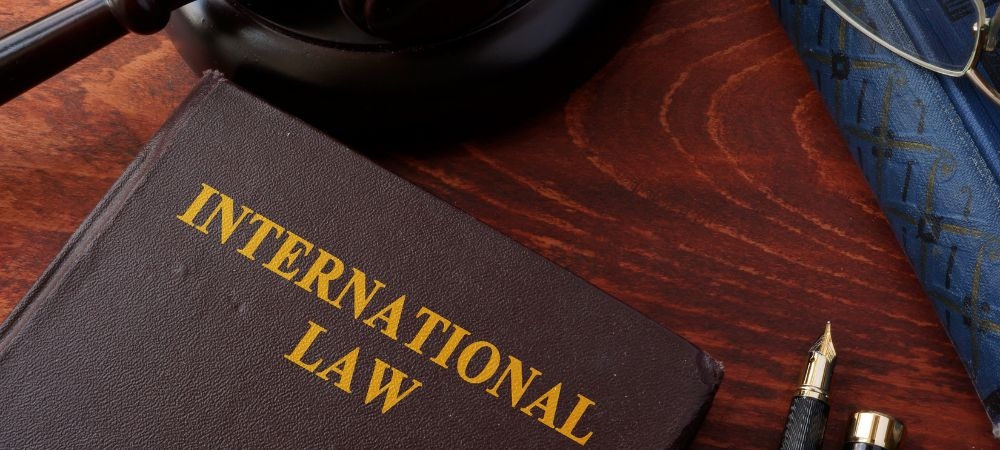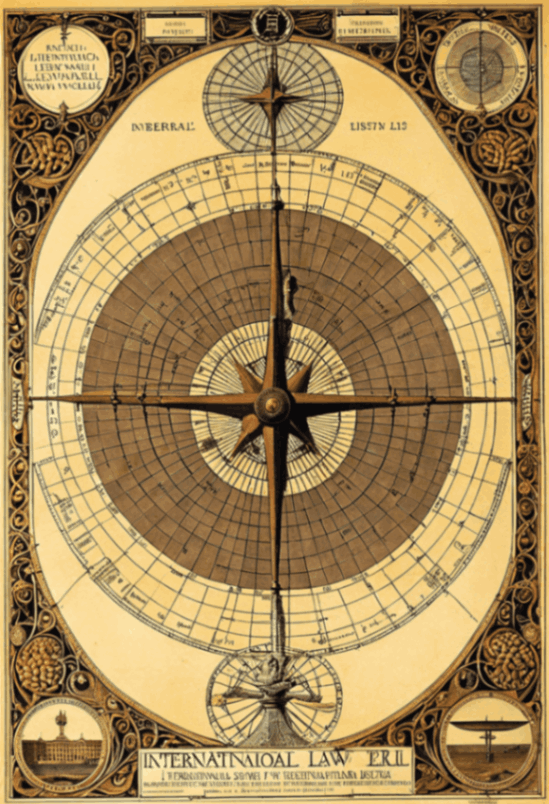

The Historical Development of International Maritime Law for Marine Environmental Protection
International maritime law has a fascinating history, especially when it comes to marine environmental protection. It didn't just pop up outta nowhere it's evolved over centuries, and not without some bumps along the way. added details offered click on this. Before we get into that, let's be clear: protecting the marine environment wasn't always a priority.
In ancient times, people didn't give much thought to the sea or its creatures. They saw the ocean as an endless resource and a convenient place to dump waste. The Romans might've been advanced in many ways, but they weren't exactly eco-warriors when it came to their waterways.
Fast forward to the 20th century, and things started changing. The Industrial Revolution had wreaked havoc on our oceans with pollution from ships and factories pouring into waterways unchecked. But guess what? People began noticing the impact! Oh yeah, there were oil spills and hazardous waste dumping that couldn't be ignored anymore.
One significant milestone was the Torrey Canyon oil spill in 1967 a real wake-up call if there ever was one. Suddenly, folks realized that maritime disasters werent just isolated incidents; they had global repercussions. This disaster prompted international action because no single country could handle such catastrophes alone.
Enter the International Maritime Organization (IMO). Formed in 1948 (though it really got going in 1959), this specialized agency of the United Nations took charge of regulating shipping practices worldwide. They didnt waste time either; conventions like MARPOL (the International Convention for the Prevention of Pollution from Ships) were established which aimed at minimizing pollution from ships by focusing on oil discharge among other pollutants.
But hey, change doesn't happen overnight! Countries had different views on how strict regulations should be enforced wasnt easy getting everyone on board (pun intended). Some nations argued stringent rules would hurt their economies while others stressed immediate action needed for long-term benefit quite a balancing act!
By late 20th century though, awareness grew about issues like biodiversity loss and climate change affecting our oceans too! Agreements like UNCLOS (United Nations Convention on Law of Sea) came into play defining rights/responsibilities concerning use/conservation marine resources globally ensuring broader protection measures implemented across borders!
Despite all these efforts however challenges persist till today: illegal fishing operations continue posing threat ecosystems worldwide while plastic pollution remains daunting problem needing urgent attention collective commitment towards sustainable future seas!
So yeah - international maritime law's journey regarding marine environmental protection is far from straightforward nor finished yet but progress undeniable thanks collaborative endeavors nations determined safeguard precious aquatic heritage generations come!
When it comes to marine environmental protection, there's a bunch of international conventions and treaties that play a crucial role. You can't ignore how important these agreements are in safeguarding our oceans. The thing is, without them, we'd be in serious trouble when it comes to preserving marine life and ecosystems.
One of the big ones is the United Nations Convention on the Law of the Sea (UNCLOS). It's like, wow, this convention covers so much! Adopted back in 1982, UNCLOS sets out rules for how countries should use the world's oceans. It ain't just about fishing rights or navigation; it addresses pollution and protects marine environments too. Countries have to prevent and control pollution from various sources like ships and land-based activities. They also gotta protect fragile ecosystems.
Then there's MARPOL - short for International Convention for the Prevention of Pollution from Ships. This treaty's been around since 1973 and it's all about reducing pollution from ships. Think oil spills, hazardous waste dumping at sea yikes! MARPOL has six annexes dealing with different types of pollutants like oil, chemicals, sewage you name it. And oh boy, it's helped reduce ship-source pollution significantly.
Another key player is the Convention on Biological Diversity (CBD), which was signed during the Earth Summit in Rio de Janeiro in 1992. This one's focused on conserving biological diversity worldwide. Under CBD's framework, theres an emphasis on protecting marine biodiversity through sustainable practices and establishing marine protected areas (MPAs). These MPAs ensure that critical habitats for species are preserved.
Don't forget about CITES Convention on International Trade in Endangered Species of Wild Fauna and Flora! Sure it's not exclusively marine-focused but hey, lotsa marine species fall under its protection too! By regulating trade in endangered species including many fish and coral species used in aquariums or jewelry making CITES helps keep those populations safe.
And let's not skip over something called London Protocol either - officially known as Protocol to London Convention Relating To Dumping Of Wastes At Sea (1996). Its goal? Preventing ocean pollution by controlling what can be dumped into seas/oceans globally; ensuring safe disposal methods are followed properly!
Now you might think "Wow", these treaties sound perfect right? Well...nope! Theres always challenges implementing 'em effectively due differing national priorities & capacities among signatories which sometimes makes enforcement tricky business indeed!
In conclusion folks: while theyre far from flawless solutions themselves alone wont solve everything wrong with our seas today international conventions/treaties definitely provide vital frameworks needed coordinate global efforts towards better protecting precious marine environments we all depend upon so heavily every single day!
The Role of the United Nations in Marine Conservation for Marine Environmental Protection
The oceans ain't just vast bodies of water; they're teeming with life and are crucial to our planet's health. Sadly, overfishing, pollution, and climate change are wreaking havoc on marine ecosystems. And guess what? The United Nations (UN) has been playing a pivotal role in trying to curb these problems. It's not like they haven't got their hands full with other issues too!
First off, the UNs Convention on the Law of the Sea (UNCLOS) is kinda like the constitution for the oceans. Adopted in 1982, this treaty sets out guidelines for how countries should use marine resources and protect ocean environments. It's pretty comprehensive covering everything from shipping routes to fishing rights. But hey, it's not perfect! There're still disputes about territory and enforcement.
The UN also runs programs specifically aimed at marine conservation. Take the United Nations Environment Programme (UNEP), for example. UNEP's Regional Seas Programme works across different regions to promote sustainable management of coastal and marine areas. Theyre doing some good stuff but lets face it - there's so much more that needs doing.
Another notable effort is the Sustainable Development Goal 14 - "Life Below Water", which aims to conserve and sustainably use oceans, seas, and marine resources by 2030. It sounds ambitious right? Well, it is! The goal includes targets like reducing marine pollution, protecting ecosystems and regulating overfishing. They've made some progress but honestly speaking were not quite there yet.
Lets not forget about international conferences and summits organized by the UN either! These gatherings bring together nations to discuss policies and share knowledge on marine protection strategies. For instance, recent Ocean Conferences have seen commitments from various countries towards creating Marine Protected Areas (MPAs). Sure, talking is great but action speaks louder than words doesn't it?
Now here comes a bit of reality check despite all these efforts by the UN; illegal fishing continues unabated in many parts of world waters while plastic waste keeps piling up in our seas causing untold damage to wildlife habitats.
In conclusion yeah I know that's a phrase everyone uses but bear with me here while United Nations initiatives provide frameworks and encourage cooperation among nations toward preserving our precious oceans; real change depends on individual countries' willingness & ability to implement them effectively within their jurisdictions.
So there you have it folks! The UN does play an important role no doubt about that yet significant challenges remain if we truly want future generations enjoying healthy vibrant marine environments as much as we do today or even more so!


When we talk about regional agreements and their impact on marine protection, we're diving into a pretty complex yet fascinating topic. These agreements are basically treaties or accords that countries within a specific geographic area sign onto to address shared environmental concerns. And let me tell ya, they can make a huge difference in how well we protect our oceans.
First off, let's not kid ourselves; the ocean's health is in trouble. Overfishing, pollution, habitat destruction you name it. It's all taking its toll. Regional agreements aim to tackle these issues collectively because no single country can fix this mess on its own. Take the Mediterranean Action Plan (MAP) for example. Countries bordering the Mediterranean Sea got together and said, "Hey, let's do something about this." They didn't just talk; they set up legally binding protocols to reduce pollution and protect marine life.
But waitit's not all sunshine and rainbows. Not all regional agreements are created equal. Some of 'em lack teeth; they're more like guidelines than actual rules people have to follow. The Baltic Marine Environment Protection Commission (HELCOM) has faced criticism for being too lenient at times. Sure, they've made progress in reducing nutrient loads causing eutrophication but enforcement? Eh, it's kinda hit-or-miss.
Oh boy, another problem: money! Implementing these agreements ain't cheap. Plenty of countries struggle with funding the necessary measures to comply fully with regional commitments. And if one country drags its feet due to lack of resources or political will well guess what? It affects everyone else involved too.
Moreover, let's be real here getting everybody on board isnt always smooth sailing either (pun totally intended). Different nations have different priorities and economic interests which can cause friction when trying to agree on stringent measures for marine protection.
Howeverand here's where I gotta give credit where it's duewhen things do work out well under regional frameworks, it shows us how powerful collective action can be! Look at the Coral Triangle Initiative involving Indonesia, Malaysia among others; theyve worked together successfully combating illegal fishing while promoting sustainable tourism!
In conclusion then: Regional agreements offer significant potential for improving marine protection but they're far from perfect panaceas.They require strong commitment from participating nations,enforcement mechanisms,and adequate funding.All said thoughtheir positive impacts shouldn't be underestimated either.So yeahits complicated!
Enforcement mechanisms and challenges in international waters are pivotal when it comes to marine environmental protection. Oh boy, it's not an easy task! These vast areas of our planets oceans, beyond national jurisdictions, present a unique set of hurdles. The open seas ain't got no sheriff patrolling them regularly, so ensuring compliance with environmental regulations becomes quite the pickle.
First off, let's talk about enforcement mechanisms. International treaties and conventions are supposed to be the backbone for protecting our oceans. The United Nations Convention on the Law of the Sea (UNCLOS) is one such framework attempting to regulate activities on the high seas. Then there's also organizations like International Maritime Organization (IMO), which work tirelessly to develop protocols for reducing pollution from ships. However, guess what? They can't do it all by themselves!
Now here's where things start getting dicey the challenges. One major issue is that the ocean's just too darn big. It's practically impossible to monitor every nook and cranny effectively. And with limited resources at their disposal, international bodies face an uphill battle trying to enforce regulations uniformly across all parts of international waters.
Moreover, not all countries play nice or even agree on certain rules laid out by these international frameworks. Some nations might have different priorities or lack the capability and infrastructure needed for proper enforcement within their own territories, let alone in international waters. This noncompliance isn't just frustrating; it's detrimental.
Illegal fishing is another huge problem that exemplifies how difficult enforcement can be. Many fish stocks are already overexploited yet illegal operators often evade detection due to inadequate surveillance systems and lack of cooperation among states.
Also worth mentioning is pollution control...or rather lack thereof sometimes! Ships discharge ballast water containing invasive species or dump waste illegally far out at sea where nobody's watching closely enough yikes!
But don't lose hope yet; there are some positive strides being made too! Technological advancements such as satellite tracking help improve monitoring capabilities significantly over recent years but still require significant investment from participating countries.
In conclusion folks: while enforcement mechanisms exist through various treaties and organizations aiming towards better marine environmental protection in international waters - they face numerous formidable challenges ranging from sheer scale issues down onto political disagreements & technological limitations alike making effective implementation extremely challenging indeed despite best efforts put forth thus far globally speaking overall anyway!
Sure, here's an essay that fits your criteria:
---
**Case Studies of Successful Marine Environmental Protection Initiatives**
When we think about the vastness of our oceans, it's easy to feel overwhelmed by the sheer scale of their problems. But let's not forget, there are some incredible success stories out there too. These case studies show us that effective marine environmental protection isn't a pipe dreamit's a reality.
One shining example is the Great Barrier Reef Marine Park in Australia. Back in the 1970s, people were genuinely worried that this natural wonder was on its last legs due to pollution and overfishing. The Australian government didn't just sit around thoughthey established the Great Barrier Reef Marine Park Authority (GBRMPA). This initiative wasn't without its critics; many folks thought it was too ambitious and would never work. However, through strict regulations like fishing quotas and no-take zones, they've managed to significantly improve water quality and boost fish populations. It's far from perfect, but hey, progress is progress.
Another compelling case is in Norway with their sustainable fisheries management. Norway's approach has been quite holisticthey've focused on both preserving fish stocks and ensuring economic stability for local communities. They use science-based quotas and have stringent monitoring systems in place to prevent illegal fishing activities. Its not like theyve solved every problem overnight; challenges persist. But overall, it's clear they're headed in a positive direction.
And who could forget about Palau? This tiny island nation made waves when it declared its entire exclusive economic zone as a marine sanctuary back in 2015a bold move considering their economy heavily depended on fishing at the time! Critics said it wouldn't last because of financial strains, but Palau proved them wrong by boosting eco-tourism as an alternative revenue stream.
Oh! And let's talk about coral restoration projects like those seen in Florida Keys National Marine Sanctuary. Scientists have developed ways to grow coral fragments in nurseries before transplanting them back into damaged reefs. It's labor-intensive work and honestly kinda slow-goingbut results are showing signs of promise with healthier reefs starting to bounce back.
But waitthese successes don't mean we've solved all our oceanic woes or anything close to that! There's still loads more work needed globallyfrom tackling plastic pollution to addressing climate change impacts on marine habitats.
So yeah, these initiatives highlight what's possible when governments, scientistsand yeseven ordinary citizens come together for a common cause: protecting our precious marine environments for future generations.
Remember folksit ain't about achieving perfection instantly but making consistent strides toward betterment!